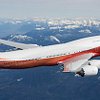In the world of passenger jets, the Boeing 747 has been an iconic figure. It wasn't that long ago that the large and powerful plane was the revolutionary flying option. It made an impact on the aviation industry as the first jumbo jetliner promising carriage of large loads of passengers traveling in a spacious and comfortable experience. Yet time and technology changes are causing airlines to slowly phase out the older generation jumbo jets. Qantas, the largest airline in Australia, is the latest to announce this change.
Making the Switch to Twin-Engine Jets
Qantas has announced that it will retire all of its 747-400's by the end of 2020. Interestingly, the airline brought on its first 747's in 1971, so nearly 50 years of service will pass when their final 747 retires. The airline currently has six 747's still in its fleet. The airline recently announced additional orders for the 787 Dreamliner. No doubt these jets will handle routes served by the retiring jet.

The twin-engine jets cannot carry as many passengers, but they can travel farther and with less fuel than the 747's. Rising fuel costs combined with the demands of maintaining old aircraft are some of the reasons for this change. The 787 also was developed with the added factor of extended flight range. Qantas recently introduced service with the 787 between London and Perth. The flight is more than 9,000 miles and takes approximately 17 hours and 20 minutes. It is one of the longest aviation routes in the world.
The 747's Are Dwindling
Qantas' announcement comes after a slew of other large airlines have done the same thing. At the end of 2017, Delta and United also retired their 747's. Currently, approximately 175 747's still carry passengers on airlines around the world, but many of these airlines will announce plans to retire theirs. British Airways, China Airlines, Korean Air, KLM, Lufthansa, and a few others are still operating the 747-400 (a newer model that was built in the 1990's and early 2000's). The cargo industry still has a demand for 747's, but the four-engine jets just do not have the fuel efficiency of newer models to make them relevant to passenger flights. Today, airlines are choosing the 787 Dreamliner, the 777-300ER, and the Airbus A350 over the older 747's.
Plans to Continue Manufacturing the Aircraft Lies with the Airlines
A technologically new version of the 747, the 747-8, debuted in 2012 with hopes that the aircraft would be sold as a replacement for the current 747-400's. Air China, Korean Air, and Lufthansa have 747-8's operating in their fleets. However, sales have not been good mainly due to the twin-engine over four-engine fuel efficiency factor. Sales for the cargo version of the aircraft have been better. The newer aircraft are not going to be phased out any time soon, but the demand for future models will rely on the airlines. Boeing will make them if asked, however, with other options that offer greater flight range and fuel efficiency, it's unlikely that many requests will come.

In closing, an aviation icon is truly reaching the end of its flight, and aficionados may feel a bit nostalgic about this fact. That said, the future for the airline industry is bright, even if it does not include the Boeing 747, as manufacturers continue to innovate and push the envelope of flight range, fuel efficiency, and power.
Make sure you visit Qantas' 747 seat maps on our site.










